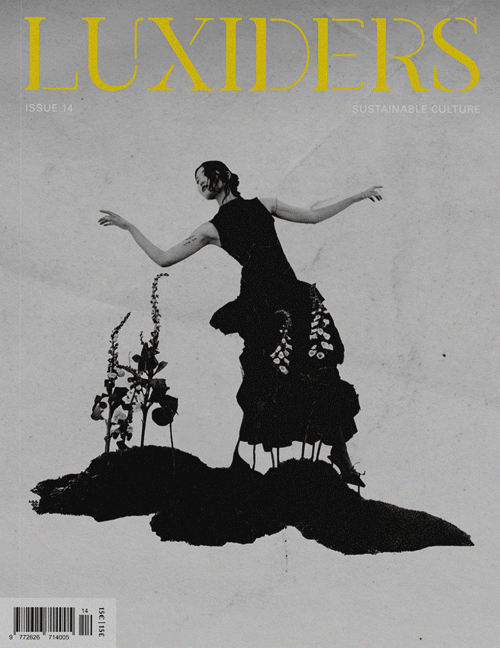
15 innovations changing the fashion world
From biodegradable glitter to fabrics made from seaweed or orange fibres – these are the next generation of fashion innovators. Algiknit, BioGlitz, circular.fashion, FLOCUS, Frumat, Good on You, Mango Materials, Nano Textile, Orange Fibre, PAPTIC, PlanetCare, Provenance, Reverse Resources, Scalable Garment Technologies and Style Lend are brands working hard to transform the fashion industry for good.
Fifteen selected start-ups are offering a better future to the fashion industry. That is why they are actually being supported by the Fashion for Good-Plug and Play Accelerator through partners like Adidas, C&A, Galeries Lafayette, Kering, Target and Zalando.
Algiknit, BioGlitz, circular.fashion, FLOCUS, Frumat, Good on You, Mango Materials, Nano Textile, Orange Fibre, PAPTIC, PlanetCare, Provenance, Reverse Resources, Scalable Garment Technologies and Style Lend represent varied supply chain areas -from alternative raw materials to new business models-. But, who are them? What kind of innovations are they offering?
A BETTER FUTURE FOR FASHION
Algiknit. It produces textile fibres extruded from kelp, a variety of seaweed. The extrusion process turns the biopolymer mixture into kelp-based thread that can be knitted or 3D printed to minimize waste. The final knitwear is biodegradable and can be dyed with natural pigments in a closed loop cycle.
BioGlitz. This company produces the world’s first biodegradable glitter. Based on a unique biodegradable formula made from eucalyptus tree extract, the eco-glitter is fully biodegradable, compostable and allows for the sustainable consumption of glitter without the environmental damage associated with micro plastics.
circular.fashion. It has created a software that interconnects circular design, circular retail models and closed loop recycling technologies enables fashion brands to design circular garments. Circular clothes are attributed an identification tag that orchestrates a reverse supply chain network of consumers, sorting and recycling companies to close the loop to regenerated textiles.
Remeant innovative textile. Remeant is a fascinating material made from single use plastic. Based on innovative technology they have created textiles from non-recycled and unconventional materials. Remeant patented process of manufacturing ensures its qualities, making it highly durable, waterproof, easy to clean & lightweight.
Flocus. The company produces natural yarns, fillings and fabrics made from kapok fibres. The kapok tree can be naturally grown without the use of pesticides and insecticide in arid soil not suitable for agricultural farming, offering a sustainable alternative to high water consumption natural fibre crops such as cotton.
Frumat. The brand uses apples to create a leather-like material. Apple pectin is an industrial waste product which can be used to create sustainable materials that are totally compostable whilst still being durable enough to create luxury accessories. The leathers can be dyed naturally and tanned without chemically intensive techniques.
Good on You. This mobile app provides ethical ratings for about 1,000 fashion brands rated on their impact on people, the planet and animals. It is built on a robust brand rating system which aggregates standards, certifications and publically available data sources into a simple, accessible 5-point score to promote transparency across the fashion industry and to allow customers to make conscious purchasing decisions.
Mango Materials. The company produces biodegradable bio-polyester that can be used as a sustainable alternative to the present polyester utilized in the fashion industry. Microfibres produced from the biopolyester can biodegraded in many environments, including landfills, wastewater treatment plants, and the oceans helping to prevent microfibre pollution and contributing to a closed-loop bio economy for the fashion industry.
Nano Textile. It offers a sustainable alternative to binder chemicals normally used to attach finishes onto a fabric. Its technology embeds fabric finishes directly into fabric using a process called Cavitation and can apply to a range of products such as antibacterial & antiodor finishes or water repellency. This protects the end-user and the environment from the leaking of hazardous chemicals.
Orange Fiber. This Italian company manufactures natural fabrics from citrus by-products. Orange Fiber is made by extracting the cellulose from the fibres that are discarded from the industrial pressing and processing of oranges. The fibre, through nanotechnology techniques, is enriched with citrus fruit essential oils, creating a unique and sustainable fabric.
PAPTIC. It manufactures bio-based alternative packaging materials that are made from sustainably sourced wood fibres. The material has the unique properties of paper and plastic commonly used in the retail sector, but with a much higher tear resistance than paper. The material can be recycled alongside cardboard.
PlanetCare. It has developed a microfibre filter to be integrated in washing machines, that can capture microplastics before they are released in wastewater. The system works on the microfiltration of water based on electrically charged fibres and membrane nanotechnology. This technology contributes to reducing microplastics pollution ending up in the ocean.
Provenance Biofabrics. Provenance bio-engineers offer a true leather equivalent by programming the self-assembly of collagen molecules the building blocks of leather. This next generation fabric delivers a more efficient and sustainable alternative to leather without harming animals.
Reverse Resources. This platform enables fashion brands and garment manufacturers to address pre-consumer waste for industrial upcycling. The Software as a Service (SaaS) platform allows fabric and garment factories to map and measure leftover fabrics and scraps so that these become traceable through their following life cycles. By mapping the waste material in the factory, these resources can eventually be reintroduced into the supply chain, limiting the use of virgin materials.
Scalable Garment Technologies Inc. SGTI has built a robotic knitting machine linked with 3D modelling software to make custom seamless knit garments. This new knitting technology enables digitization of the entire production process and on-demand manufacturing of custom seamless knit garments. This allows responsiveness to consumer demand while reducing waste.
Style Lend. It is a fashion rental marketplace. AI and machine learning is used to match users based on fit, as well as style. By renting out garments consumers can extend the life cycle of clothing and delay it from going into landfills.






